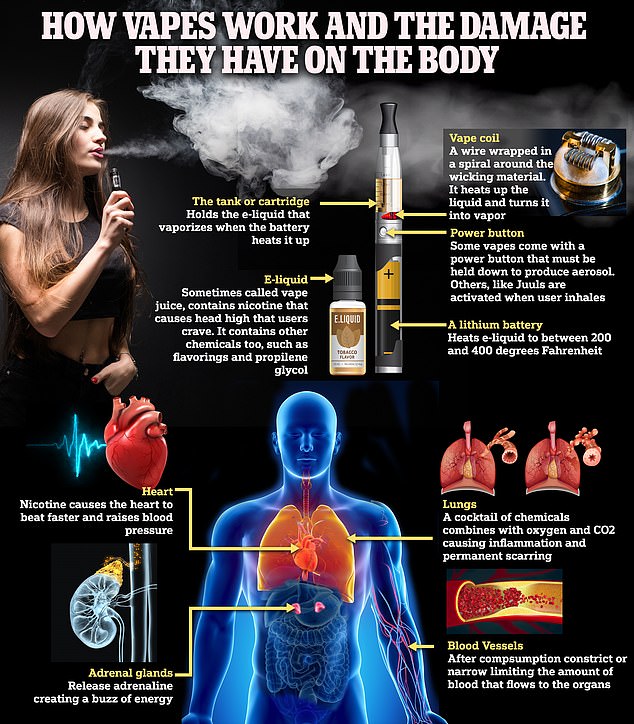Scientific evidence overwhelmingly indicates that electronic cigarettes (e-cigarettes) are harmful to individuals with asthma and carry significant respiratory risks.
E-Cigarette Aerosol and Asthma Risks
Unlike medicinal nicotine, e-cigarette aerosol contains numerous substances irritating to the lungs. Key components include:

- Nicotine: An airway irritant known to increase inflammation and cause bronchoconstriction (airway narrowing).
- Ultrafine Particles: Deeply penetrate the lungs, promoting inflammation and oxidative stress.
- Flavoring Chemicals (e.g., Diacetyl, Cinnamaldehyde): Many are respiratory irritants and linked to airway damage (“popcorn lung”) and heightened allergic responses.
- Volatile Organic Compounds (VOCs) & Heavy Metals: Released from the device and liquid, contributing to toxicant exposure.
Specific Respiratory Effects on Asthma
Clinical and epidemiological studies demonstrate that e-cigarette use:
- Increases Asthma Exacerbations: Users report more frequent asthma attacks and symptoms (wheezing, shortness of breath).
- Worsens Airway Inflammation: Biomarkers show elevated levels of inflammatory cells and cytokines in the airways.
- Impairs Lung Function: Studies associate use with decreased lung function, including FEV1, crucial for asthma control.
- Enhances Bronchial Hyperresponsiveness: Airways become overly sensitive and reactive to triggers.
- May Increase Asthma Development: Evidence suggests potential for new-onset asthma with use, particularly in youth.
Comparison to Smoking and Cessation
Not a Safe Alternative: While likely less harmful than continued combustible cigarette smoking in some aspects, e-cigarettes are absolutely not safe, especially for the asthmatic lung. Harm reduction compared to smoking does not equate to being safe or beneficial for asthma.
Ineffective Cessation Tool: Evidence for e-cigarettes as effective long-term smoking cessation aids remains limited and controversial. Asthma-specific cessation should rely on proven methods like FDA-approved pharmacotherapy (patches, gum, lozenges, prescription medications) combined with behavioral counseling.
Clear Recommendations for Asthma
Individuals with asthma should not use e-cigarettes. They pose distinct and substantial respiratory hazards, trigger symptoms, worsen lung function, and increase exacerbation risk. For asthmatic smokers, complete cessation using approved, non-inhalation therapies under medical guidance is the only recommended approach to improve respiratory health.









